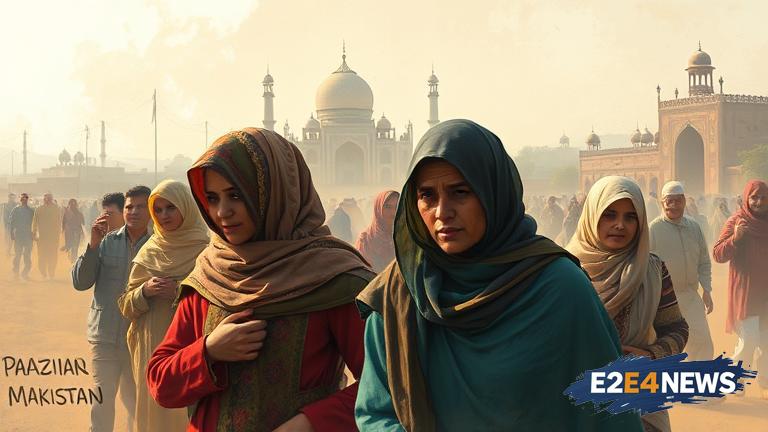The issue of violence against women in Pakistan has been a longstanding concern, with the country ranking as one of the most dangerous places for females. According to recent statistics, cases of violence against women have increased significantly, with many incidents going unreported due to social stigma and fear of repercussions. The types of violence range from domestic abuse and harassment to honor killings and acid attacks. Many women in Pakistan face significant barriers in accessing justice, with a lack of awareness about their rights and limited access to resources. The government has introduced various laws and initiatives aimed at protecting women’s rights, but implementation remains a challenge. Despite these efforts, the number of cases of violence against women continues to rise, with many perpetrators going unpunished. The root causes of this issue are complex and multifaceted, involving societal attitudes, cultural norms, and economic factors. Women in Pakistan often face significant restrictions on their freedom and autonomy, with many being forced into marriages or denied access to education and employment opportunities. The media has a significant role to play in highlighting these issues and raising awareness about the importance of protecting women’s rights. However, many cases of violence against women are often sensationalized or trivialized, perpetuating harmful stereotypes and stigma. The international community has also expressed concern about the situation, with many organizations and countries calling on the Pakistani government to take stronger action to protect women’s rights. In recent years, there have been some positive developments, including the introduction of new laws and the establishment of specialized courts to handle cases of violence against women. Nevertheless, much work remains to be done to address the root causes of this issue and ensure that women in Pakistan are able to live free from violence and discrimination. The Pakistani government must take a more proactive approach to addressing these issues, including increasing funding for initiatives aimed at protecting women’s rights and providing greater support to victims of violence. Additionally, there is a need for greater awareness and education about the importance of protecting women’s rights, as well as efforts to challenge harmful societal attitudes and cultural norms. The role of civil society organizations and the media is also crucial in highlighting these issues and advocating for change. Ultimately, addressing the issue of violence against women in Pakistan will require a sustained and collective effort from all stakeholders, including the government, civil society, and the international community. By working together, it is possible to create a safer and more equitable society for women in Pakistan. The situation is dire, and immediate action is needed to address the growing concern of violence against women. It is essential to recognize the gravity of the situation and take concrete steps to prevent such incidents. The government, in collaboration with civil society organizations, must develop and implement effective strategies to combat violence against women. This includes providing support to victims, raising awareness about the issue, and promoting a culture of respect and equality. Furthermore, it is crucial to address the root causes of violence against women, including poverty, lack of education, and societal attitudes that perpetuate discrimination and inequality. By taking a comprehensive approach, Pakistan can work towards creating a society where women are valued, respected, and protected. The time to act is now, and it is essential that all stakeholders come together to address this critical issue. The future of women in Pakistan depends on it, and it is our collective responsibility to ensure that they are able to live free from violence and discrimination.
